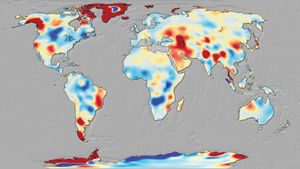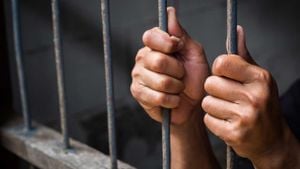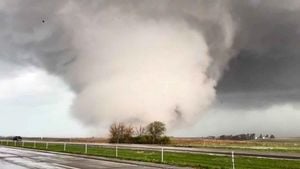The conflict between Russia and Ukraine continues to evolve as significant changes on the international front seek to address the war's impact and seek resolutions. This past week, developments such as U.S. diplomatic missions, attacks on energy infrastructure, and calls for ceasefires emphasized both the urgency and the complexity of the situation.
American envoy for Ukraine, Keith Kellogg, is set to visit Ukraine next week. This trip, announced by CNN, will mark his first official visit to Kyiv, coinciding with the Munich Security Conference where discussions about the conflict are expected to take center stage. Ukrainian President Volodymyr Zelensky expressed his anticipation for serious discussions, particularly with U.S. Vice President J.D. Vance, who will also attend the conference. Prior meetings between Trump and Zelensky are expected to pave the way for negotiations aimed at ceasing hostilities. Trump emphasized the need for both parties to meet and resolve the conflict directly, also hinting at the importance of U.S. support through military and financial assistance to Ukraine.
The international community has reacted with intensified scrutiny as sanctions against Russia continue to strain relationships among former Soviet republics. Hubert Smeets, an expert on Russia, noted the shift away from Moscow's influence, especially as Western sanctions create economic challenges in Russia. This has resulted in former Soviet states reassessing their educational systems, favoring modern skills over traditional methods, which increasingly appear outdated against global standards.
On the ground, the violence persists, with reports of Russian drone attacks leading to civilian casualties. Kyiv officials reported injuries following drone strikes on non-residential buildings, which resulted in extensive damage but no fatalities. Meanwhile, Russia issued warnings about the stability of nuclear arms negotiations, highlighting the uncertain future as the New Strategic Arms Reduction Treaty approaches its expiration.
A recent attack left two Ukrainian soldiers dead outside of Munich, amplifying international concerns about the impact of the war on soldiers recovering abroad. The assailant, under the influence, claimed the incident did not relate to the war itself, yet it casts shadows on the trauma inflicted by the conflict, even outside the battlefield.
Efforts to solidify European independence from Russian energy dependency have gained traction. Zelensky has advocated for alternative energy sources from the Middle East and North Africa, emphasizing the need for Europe to reduce reliance on Russian supplies. The Baltic states have already begun disconnecting from the Russian electricity grid, and Zelensky aims for similar actions across Central European countries.
Adding to the complexity, pro and anti-Russian sentiments mingle within Russian territories. Recent court rulings have led to life sentences for Russian soldiers committing internal violence, pointing to the fractured state of morale and command within Russian forces. Reports also indicate extensive pressures on military recruitment efforts, leading to heightened scrutiny over the motivations behind soldiers' desertions.
Military engagements continue at the border as Ukraine presses forward with operations aimed at reclaims of occupied territories, particularly around Koersk. Ukrainian authorities indicate significant captures have taken place, including the recent detention of over 900 Russian soldiers. This continuous effort appears part of Ukraine's strategic aim to bolster their negotiating position should peace talks emerge.
Trump's administration's approach to the conflict has created waves within international diplomatic circles. The former president, emphasizing his intent to swiftly resolve the conflict, has indicated he desires negotiations, potentially viewing the war as leverage for securing economic resources from Ukraine, particularly its rare earth metals, which are pivotal for technological industries.
Ukraine remains firm on humanitarian corridors and addressing of citizen concerns within occupied territories. Currently, President Zelensky expressed readiness to negotiate, yet insists upon receiving official communication from Russia to facilitate potential corridors for civilians. This reflects the broader humanitarian concerns both nations face as casualties continue to mount and civilians endure the harsh realities of the elongated conflict.
World leaders are closely monitoring the situation, realizing the necessity for cohesive and practical steps toward achieving lasting peace — strategies challenged by the realities on the ground and strategic military developments. The expectation is for Kellogg’s negotiation strategies to yield fruitful discussions at the Munich conference and move the dial closer to resolving this protracted conflict.
Despite hopeful advances, the path remains riddled with obstacles as both Ukraine and Russia's positions solidify, complicate dialogue, and hinder humanitarian efforts contributing to the enduring crisis. The international community holds its breath as diplomacy battles against military might, all eyes turning to upcoming weeks for potential breakthroughs.



